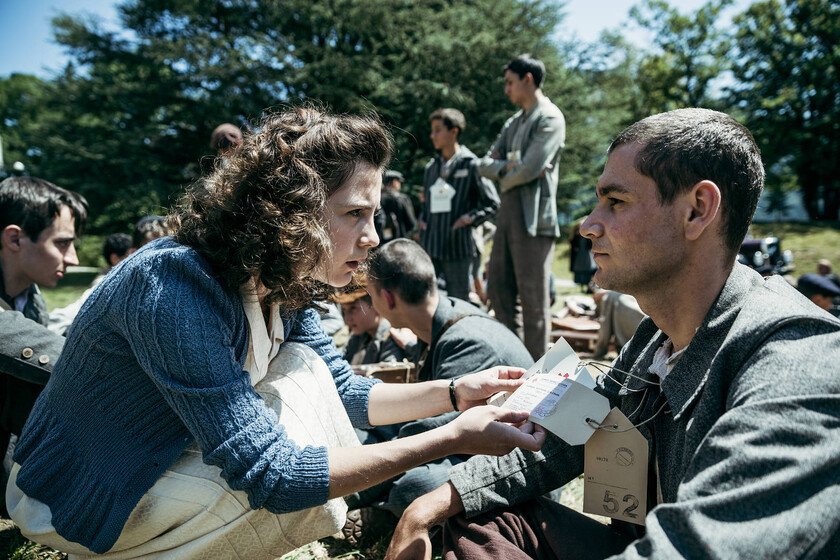There is a phrase, ending the first episode of ‘Labyrinth of peace‘(‘ Frieden ‘), a series that has landed on Filmin this Tuesday, which is quite revealing on the gap Switzerland is in at the end of WWII: that “for Switzerland, the war begins now” it confirms to the viewer the delicate panorama that the neutral country faced.
Set in mid-1945, the fiction starts from two parallel situations: on the one hand the reception of young Jews freed from German concentration camps, he tests the hospitality of the Swiss, who see them as a burden; on the other, the country looks like a juicy haven for wealthy nazis, who see that as long as they do not commit a crime in the country they can live comfortably in it. All this in a context of economic crisis when losing his greatest partner.

A fairly unknown question that drew the attention of Petra Volpe, creator of the series, for how this did not marry (and stained) with the apparently neat history of the country. The filmmaker is in charge of bringing this episode of history to the fore in a vintage blockbuster that takes us back to those first postwar weeks.
Rich Nazi, poor Jew
Throughout six episodes, ‘Labyrinth of Peace’ puts the focus on three frames. On the one hand Klara (Annina Walt) works in an institution that shelters young holocaust survivors, received with suspicion; Johann (Max Hubacher) struggles to keep his father-in-law’s company afloat and will soon find that the solution lies in making a pact with the devil; Egon, for his part, begins to work in the Attorney General’s office chasing fugitive Nazis, but he will discover that in practice there is a lot of a blind eye.
It is always difficult to approach, because of how unattractive it seems a priori, that “fourth act”. That what happens after the action, when the conflict ends and you have to deal with the consequences. Volpe puts a certain effort in that “new normal” with the circumstance of the neutrality of the scene in the war.
The country has to be supportive and humanitarian more for neighborhood and for not getting into international trouble than for pure charity. That Switzerland of ’45 reflects the Europe of the refugee crisis of not so long ago, that principle of solidarity that is seen, as far as possible, upset by considerations and economic interests.
A calm series with a somewhat precarious balance

That message transpires in ‘Labyrinth of peace’, so much so that even the presentation card of the series has a paper bow tie made from a banknote. In this way Volpe’s script goes very front with what he wants to count and rarely deviates from exploring how the country treats Jews and Nazis and how there are always opportunists and whoever wants to get a slice of the end of the war.

Mike Schaerer’s direction is not overly inventive, always staying accommodated by sophisticated television standards. The script, on the other hand, does not finish integrating the individual frames well into the whole. Beyond the fact that one is more emotional than the other, trying to give them the same weight makes, paradoxically, the interest unbalanced. Here it is true that it depends on each viewer, since there will be some who connect more with Klara’s plot and others with Egon’s, but it is too easy to lose interest if one does not manage to permeate.
‘Labyrinth of peace’ is, broadly speaking, a solid period drama that takes on a little-known reality and he brings it to light not so much as a blow on the table but as a calm exposition of that uncomfortable truth and how those post-war moments were lived. Although a certain restraint and sobriety is always welcome, at times the series asks for something more forceful.
